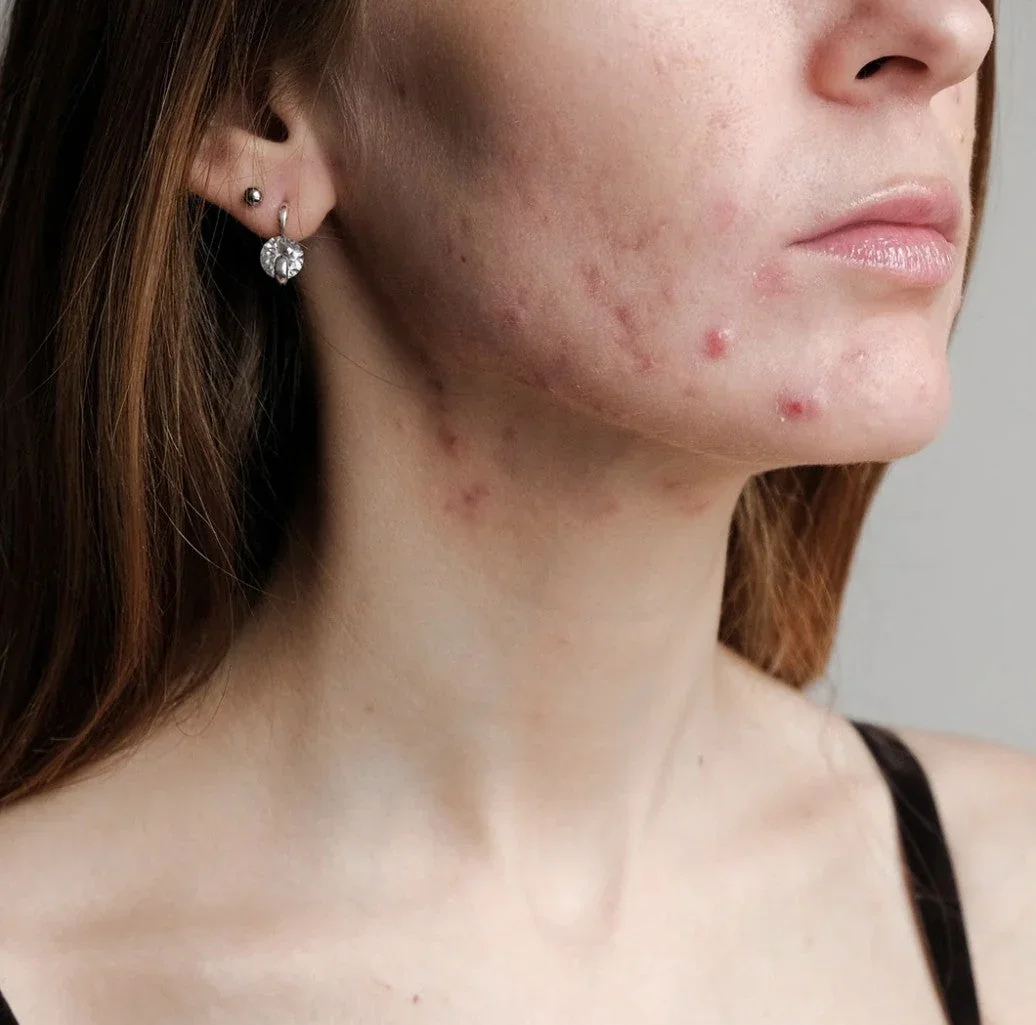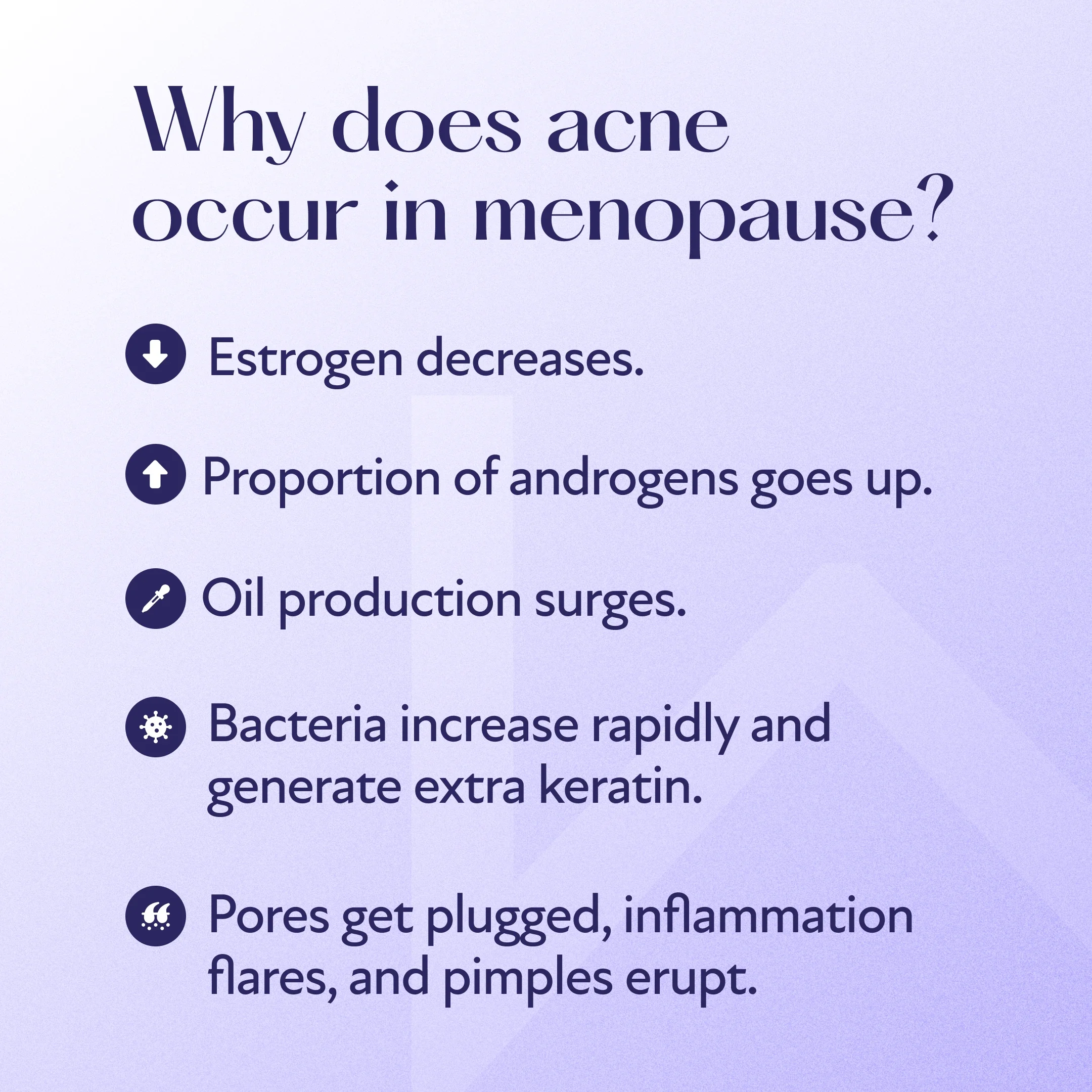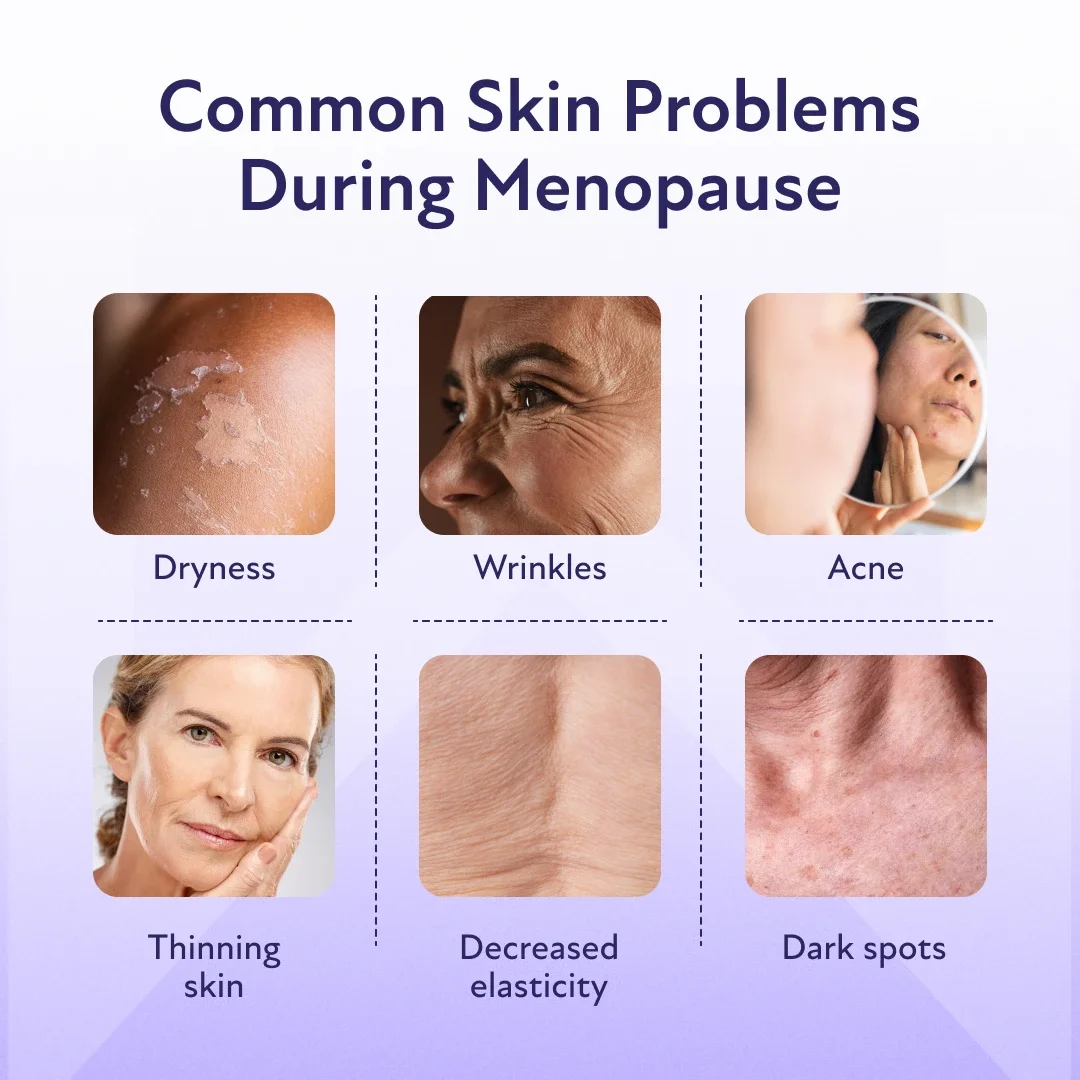Menopausal Acne: Causes, Treatments & How to Clear Hormonal Breakouts After 40
Menopausal Acne: Why It Happens — and What You Can Do About It
Menopause is a transformative phase, including changes in the skin. One of the most frustrating is the sudden appearance or worsening of acne.
At Fresh Aesthetics & Skin, we understand that menopausal skin presents its own unique challenges. Whether you’ve struggled with acne before or are experiencing it for the first time, this stage of life often requires a new approach. Here, we explore the underlying causes of menopausal acne, and how a tailored treatment strategy combining advanced skin therapies with medical insight, can help you regain control.
Why Does Acne Flare During Menopause?
Acne is commonly associated with adolescence, but it’s increasingly being recognised as a concern during perimenopause and postmenopause. In fact, many women who never experienced acne in their teens may find themselves dealing with breakouts in their 40s, 50s, and beyond.
This is largely driven by:
Hormonal imbalances
Increased skin sensitivity
Changes in the skin microbiome
Lifestyle and environmental stressors
The Hormonal Imbalance Behind Adult Acne
As oestrogen levels decline in menopause, androgens (like testosterone and DHT) become more dominant. This shift increases sebum (oil) production and alters how the skin functions, leading to:
Clogged pores
Inflamed, cystic breakouts
Increased skin sensitivity and reactivity
Additionally, reduced oestrogen compromises the skin’s ability to retain moisture, exacerbating dryness and creating the perfect environment for breakouts to thrive, particularly around the jawline, chin, and neck.
The Role of the Skin Microbiome
The hormonal changes of menopause also impact the delicate skin microbiome, the ecosystem of bacteria that helps keep inflammation under control.
As the balance shifts, inflammation increases and the skin becomes more reactive to triggers like stress, diet, skincare products, and environmental toxins.
Menopausal Skin = More Sensitive Skin
Menopausal skin often becomes:
Dryer due to reduced lipid production
Thinner and more fragile due to collagen loss
Easily irritated, especially by active ingredients or harsh products
This increased sensitivity makes acne more difficult to treat. Over-the-counter products may do more harm than good.
What Does Menopausal Acne Look Like?
Unlike teenage acne, menopausal acne often presents as:
Deep, painful cysts
Inflamed papules or nodules
Less comedonal (fewer blackheads)
Mostly concentrated around the lower face and jaw
It’s essential to have your skin professionally assessed, as conditions like rosacea, folliculitis, or perioral dermatitis can look similar but require different treatment approaches.
Treatment Options: A Personalised, Medical Approach
At Fresh Aesthetics & Skin, we create bespoke treatment plans that address both the root causes and visible symptoms of menopausal acne. Treatment may include:
1. Topical Therapies
Retinoids (like tretinoin) to improve cell turnover and reduce clogged pores
Benzoyl peroxide and azelaic acid to reduce inflammation and bacterial activity
We may also recommend barrier-repairing skincare, particularly for sensitive or dry skin types.
2. Systemic Treatments
Oral medications such as:
Spironolactone (blocks androgen receptors)
Low-dose antibiotics (for short-term inflammation control)
3. HRT (Hormone Replacement Therapy)
Low-dose, continuous combined HRT will improve hormonal balance and skin health.
In-Clinic Procedures for Hormonal Acne
Sometimes topical or oral medications aren’t enough. At Fresh Aesthetics & Skin, we offer advanced in-clinic treatments that complement medical therapy:
✅ Chemical Peels
Glycolic, salicylic or retinoid-based peels help exfoliate, clear congestion, and regulate oil production.
✅ Microneedling
Promotes collagen production, strengthens the skin barrier, and helps reduce post-acne marks.
Gut Health, Stress & Lifestyle
Emerging research highlights the link between gut health and skin health. An imbalanced gut microbiome may influence hormonal pathways, inflammation, and the skin barrier.
At Fresh Aesthetics & Skin, we often recommend:
Probiotics or prebiotic skincare
Anti-inflammatory diets
Stress management strategies
Adequate sleep and hydration
These small lifestyle shifts can significantly support your overall skin treatment plan.
Emerging Research: What’s Next?
Scientists are now exploring microbiome-targeted skincare, personalised probiotic therapy, and new-generation anti-inflammatory agents for menopausal skin.
In Summary: Menopausal Acne Is Treatable With the Right Plan
Menopausal acne is a complex skin condition that needs expert assessment and targeted treatment. With the right mix of:
Medical-grade skincare
Lifestyle adjustments
In-clinic support
Expert diagnosis
you can achieve calmer, clearer, and healthier skin, well beyond your 40s and 50s.
Book a Consultation with Dr. Brian
Whether you’re struggling with new breakouts, sensitive skin or redness, we recommend starting with our Digital Skin Analysis, a technology-led assessment that allows us to build a personalised treatment plan based on your skin’s needs.
📍Fresh Aesthetics & Skin, serving Portadown, Lurgan, Banbridge, Moira, Craigavon, Newry and the surrounding areas!
✨ Expert-led care in both skin health and advanced aesthetics




